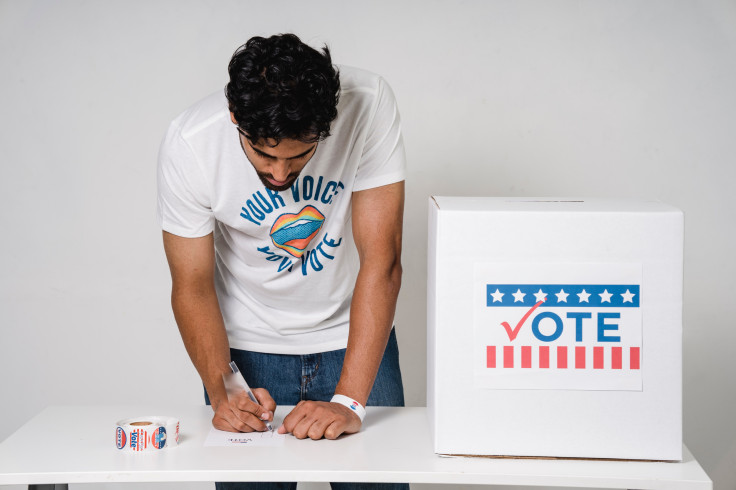
Despite composing a huge proportion of the U.S. population, Latinos find in voting and public office one of the largest areas of underrepresentation, a situation that some organizations are fighting to reverse.
According to the latest figures by the U.S. Census Bureau, Latinos and Hispanics living in the country are close to 64 million, more than 19% of the total population. The National Association of Latino Elected and Appointed Officials (NALEO) says this fails to reflect on election days and elected office.
Beyond the interest on behalf of Latinos to cast their votes in the ballots, there are some mechanisms that attempt against the voting rights of this minority, says NALEO.
"Since the U.S. Supreme Court's 2013 Shelby County v. Holder decision gutted the heart of the Voting Rights Act of 1965, states and localities across the country have been able to pass unfair and restrictive voting laws and implement discriminatory voting practices. As a result, Latinos have faced new barriers to voting that have seriously weakened our democracy," said Arturo Vargas, Executive Director of the National Association of Latino Elected and Appointed Officials (NALEO) Educational Fund.
This is one of the main reasons why many Latinos do not vote and why they have little political representation in elected office, given their growing demographic share in the nation. In Texas, for example, Latinos made up 40.2 percent of the state's population last summer, compared with 39.8 percent for non-Hispanic whites, according to the U.S. Census Bureau. The development was first reported by the Texas Tribune. Experts say Latinos have been the state's largest ethnic population for some time, but undercounting in the census has delayed anything official.
For Congresswoman Sewell, the bill would protect the right to vote and safeguard our democracy by restoring and modernizing the full protections of the Voting Rights Act of 1965 (VRA), and director of NALEO expressed his agreement.
"The bill would establish a strong and targeted process for federal review of voting changes in jurisdictions nationwide, focusing on measures that have historically been used to discriminate against Latinos and other underrepresented groups," Vargas stated.
The provisions of this bill are essential to prevent the further proliferation of voter suppression laws - especially in parts of the country with increasing racial, ethnic, and linguistic diversity where there may not yet be a well-documented history of discrimination," the Latino activist emphasized.
Among the many restrictive laws, he highlights strict identification requirements, limited multilingual voting materials, which target mostly Latino population, requiring people to bring IDs that Latinos don't have in as high numbers as the Anglo population or the Black, and politically motivated redistricting, called gerrymandering.
LANGUAGE
One of the biggest limitations that the Hispanic community has when it comes to participating in elections is the language barrier, especially for seniors who in many cases are not fluent in English or only speak Spanish.
In 1975, Section 203 of the Voting Rights Act (VRA) was added to help these people, who make up about 8.3 percent of the total U.S. population according to the U.S. Census Bureau, by requiring all elections to provide translated ballots and election information in other languages.
The legislation targets not only Spanish, but also Asian, American Indian, and Alaska Native languages. The goal is to make voting more accessible to non-English speakers who have historically been excluded from the political process.
"After the devastating Shelby v. Holder Supreme Court decision gutted key components of the Voting Rights Act a decade ago, some states have criminalized individuals and groups that assist with voter registration and have withdrawn or denied the use of multilingual ballots and translators at the polls," said Congressional Asian Pacific American Caucus Chair Judy Chu. "These shameless voter disenfranchisement tactics especially hurt those in the AANHPI (Asian American and Native Hawaiian/Pacific Islander) community - over one-third of whom have limited English proficiency and need multilingual assistance to exercise their right to vote.
REDISTRICTING
Another reason for the alienation of Latino voters is the redistricting process. Lawmakers have drawn various political maps in the last decade that either concentrate or divide the voting power of Latinos. This political practice called gerrymandering is an abusive way that has affected many Latino communities across the country.
For decades, voting and civil rights advocates have blamed redistricting for the gap between Latino population and Latino voting power in the state. They say changes to these policies are essential to getting more Latinos to the polls during elections.
Recently, the U.S. Supreme Court's decision in Merrill v. Milligan helps preserve the strength of Section 2 of the Voting Rights Act (VRA), which protects voters of color from discrimination in exercising their right to vote. By protecting voters from discriminatory redistricting, the case helps ensure that underrepresented communities have a fair opportunity to elect responsive and accountable leaders.
AGE
Arturo Vargas says another reason is that the state's Latino population has a lower median age than non-Latinos.
"While Latinos are now the largest ethnic group in the state of Texas, they are actually the majority of young people and children in Texas," he says. "Now more than 50% of all Texans under the age of 18 are Latino. So, a much larger portion of the Latino population cannot vote simply because they are not old enough."
Vargas says it could take a long time for all these young Latinos to become a significant political force, because young people don't vote at the same rates as older people.
The situation is changing from the time people of color had to pay a poll tax to vote in Houston.
Finally, both political parties are starting to pay more attention to Latino voters if they want to win, especially in some swing states.
Vargas says government and political officials should do a better job in the coming years of not only courting Latino communities, but also meeting their needs.
© 2025 Latin Times. All rights reserved. Do not reproduce without permission.






